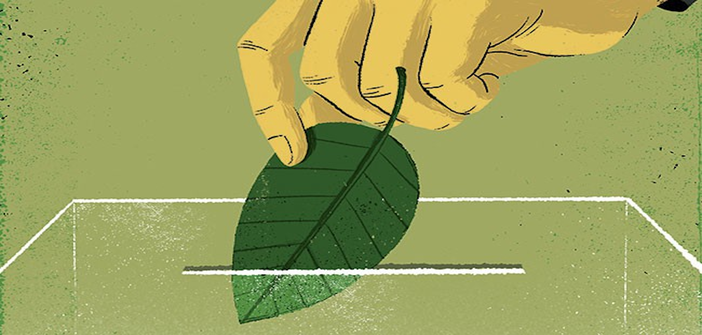The term “political ecology” extends far beyond a mere environmentalist agenda. Its program goes well beyond the concern of repairing or preventing the damage caused to the environment by modern societies. It explicitly aims for a radical transformation of these societies, overturning most of the trends that have guided their evolution thus far. Proponents of this program assert that such radicalism is absolutely essential to achieve the targeted environmental goals.
Because the program of political ecology, at least the French program, is indeed radical*. Many voters are probably unaware of this since it is not emphasized in the public debate, which primarily focuses on climate and environmental issues, topics on which there is broad consensus (aside from a few discredited and very isolated climate skeptics). This program is explicitly anti-capitalist, and in a less articulated way, it is also anti-individualist.
The denunciation of capitalism is omnipresent here: “Capitalism, productivist and consumerist, imposes the commodification of the living and non-living. (…) All these signals are alarming and require deconstructing the capitalist imaginary that dominates the planet and imposes its ‘will to power,’ its predatory relationship with nature, its economic, social, and political choices…”
This denunciation leads to the choice of a “post-growth society” where it will be “essential to anticipate and plan” by undertaking a “voluntarist policy” led by “a strategic State facing lobbies and financial powers that refuse to make the shift toward a post-growth society.”
The program thus plans for activities such as education, health, nature, and environmental protection, but also culture, transport, energy, or telecommunications, “to remain under public control and able to waive the requirement for financial profitability.” More generally, the document states that it aims to “ecologize all sectors of the economy.”
But the most important aspect of the political ecology program is its clearly anti-individualist orientation.
This is, after all, the essence of the political ecology project: nothing less than “changing the social logic and system of values that confine us in consumerism, the ‘always more,’ the deleterious effects of competition, and the pursuit of power.” There is a need to put an end to “the multiplication of unnecessary material needs” and “to this quasi-religious faith in progress.”
Finally, proponents of political ecology propose boldly developing “direct democracy” and “generalizing citizens’ conventions.”
This kind of political orientation is what the economist Friedrich Hayek refers to as “planning,” which seeks to replace competition to organize society entirely towards a given goal.
Hayek writes very insightful pages about planning and democracy, which resonate with the project of political ecology. His argument is that collectivism brings society back to the state of premodern societies where man “could barely conceive of acting differently from his peers.”
Isn’t this somewhat akin to what political ecology proposes in France?
What could then happen? An ambiguous relationship with democracy, without knowing what the fate of the dissenters will be.
by Garibaldino


